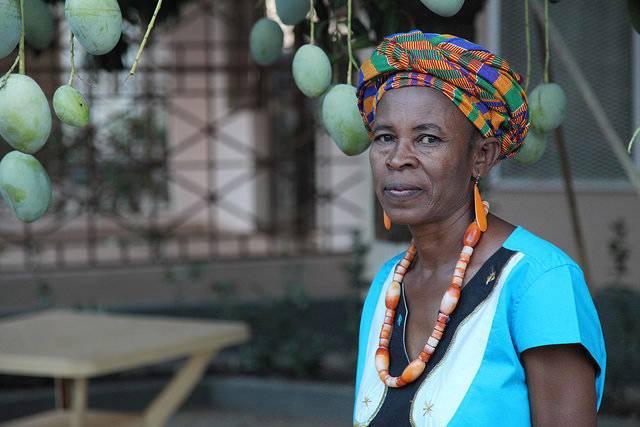
Scientists have been arguing for decades over how to best fill the world's food basket.Transgenic food producers maintain that the world needs today's technology to protect -- and increase -- its food production. Genetic modification has in some cases extended the life of perishable foods like tomatoes and made it easier to safeguard crops from blight and disease.
Advocates that lobby for more "natural" processes like some forms of organic farming tout their own accomplishments as well, claiming that while the long-term safety of ingesting GM crops is still relatively unknown, sustainable agriculture has proven results and can perform just as well if not better in mass food production than monoculture crops.
A new peer-reviewed paper by a researcher at Macalester College, Minn. in fact, is the latest to add weight to the claim that sustainable farming is the planet's best tool for meeting the demands of a growing global population. Scientists warn that with the world's increasing growth, food demands are due to outstrip our current rate of production by 2050. Improving and accelerating food production is a must if we are to ensure enough food for the world's population.
Prof. William G. Moseley, whose area of expertise is geography, maintains that while GM technology provides new tools to combating food shortages, its strategies actually increase -- not decrease -- the cost of food production in developing countries. That's because it relies on standardization of food production methods in environments that don't always allow for such predictable measures.
"[GM] solutions are often aimed at maximizing production under ideal conditions, as opposed to minimizing risk in highly variable meteorological environments," wrote Mosley. Places where that often works best is "semiarid tropics" and climates where rainfall may be reduced due to climate change. "As such, investing in GMO-seed technology represents a significant financial risk for many small famers in variable rainfall environments.” He added that market conditions in developing countries often make investing in GM crops a much riskier business for the small landholder.
Moseley isn't the only expert to question the viability of GM technology as a means for boosting the world's food production. In 2014, researchers in the Department of Environmental Science, Policy and Management at the University of California found that the yield gap between transgenic food production and sustainable farming methods was shrinking.
The reason? "Improved" strategies in sustainable farming was able to increase food production, just as GM technology had first proven to do when it was unveiled. Smart farming methods like taking advantage of "intercrop combinations, crop rotation sequences, composting, biological control, etc. ... could be altered in different cropping systems to mitigate yield gaps between organic and conventional production," Lauren C. Ponisio et al, said.
"Our meta-analyses found relatively small, and potentially overestimated, differences in yield between organic and conventional agriculture," leading to the conclusion that sustainable farming methods actually do have the potential to meet the world's mandatory thresholds for food production, if given the chance.
Other experts insist that the strategies used in sustainable food production have long-term benefits that go far beyond the season's food yield, especially when it comes to combating the effects of this century's greatest challenge: climate change.
"Unlike genetically-engineered crops (GMOs) that attempt to build resilience into the genomes of specific cultivars one trait at a time, agroecology strengthens the resilience of the entire agroecosystem," said Eric Holt-Gimenez, an agroecologist, political economist and the Executive Director of Food First. Agroecology is the application of ecological systems to agriculture. Biodiversity and careful, well-managed agroecological farming methods have actually been shown to boost the endurance of crops against global warming, drought, flooding and plummeting temperatures.
He also points out that not all organic farms necessarily fit the profile of agroecology. Some are "vast industrial monocultures," said Holt-Gimenez,
What these new studies indicate "is that agroecology — not organic agriculture per se — is the key to yield and sustainability."
Images: Flickr/Global Justice Now; Flickr/Northwest College Agriculture
Jan Lee is a former news editor and award-winning editorial writer whose non-fiction and fiction have been published in the U.S., Canada, Mexico, the U.K. and Australia. Her articles and posts can be found on TriplePundit, JustMeans, and her blog, The Multicultural Jew, as well as other publications. She currently splits her residence between the city of Vancouver, British Columbia and the rural farmlands of Idaho.














